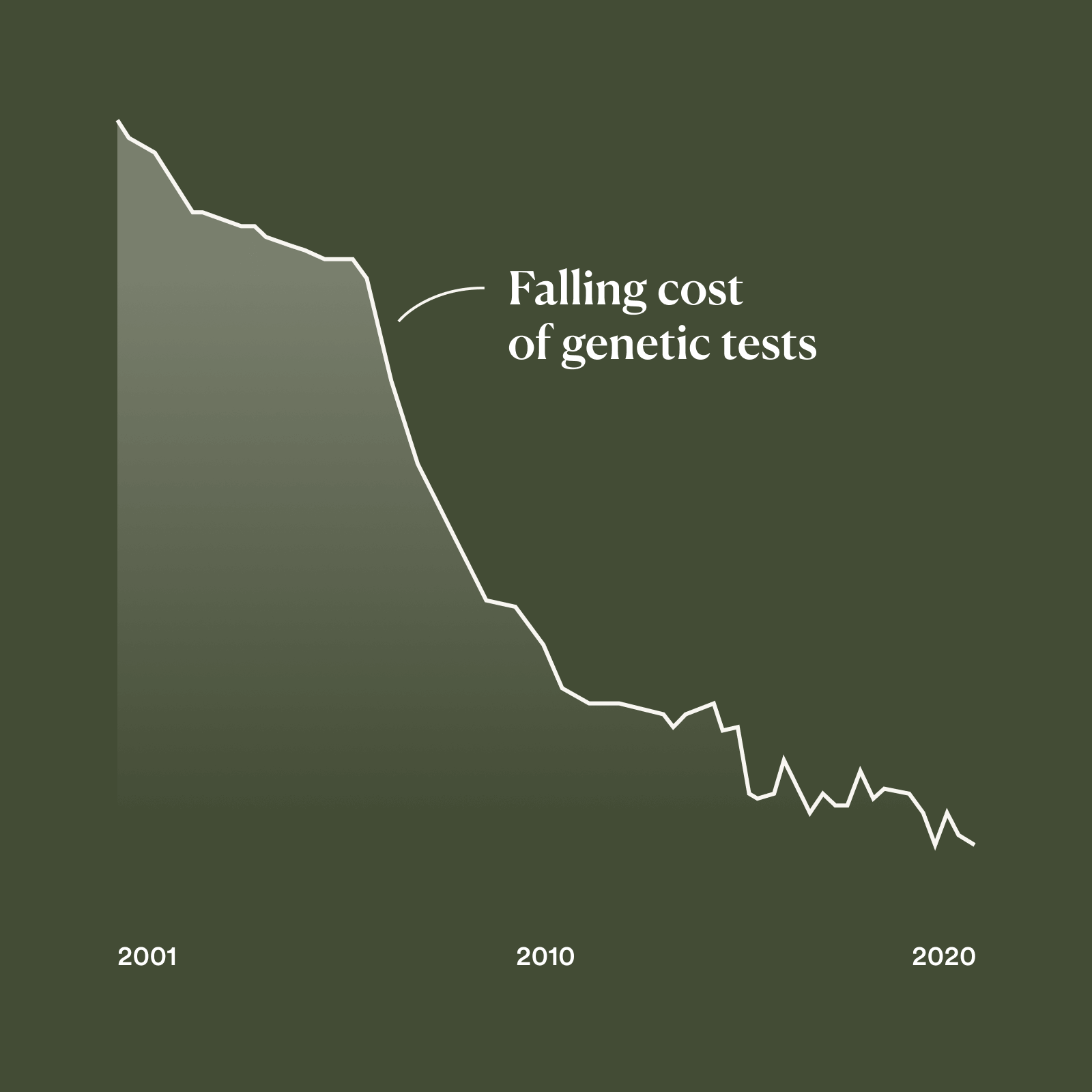
Personalised healthcare starts with DNA testing.
We collaborate with leading genetics experts and internationally accredited laboratories to deliver medical-grade genetic tests and personalised clinical care straight to your doorstep so you can make empowered health choices for you and your family.

The science behind our tests
Twenty years ago, it cost $2.7 billion to sequence the human genome. Now, the price is closer to $1,000.
We use next-generation sequencing (NGS) - a modern technology used to read human DNA code much faster and cheaper than older methods — reading millions of small pieces of DNA at once.
This has made it easier to understand the link between our genetics and health. We can now use it to identify variations in genes that could lead to a disease so we can prevent health issues before they happen.
How your DNA becomes a report
When it comes to our DNA, human beings are 99.3% the same. That 0.7% is what makes each one of us unique. These differences are called variants.
Variants can be linked to certain health conditions or other traits.
Our internationally certified labs extract DNA from cells in your saliva sample. Then our lab processes the DNA and reads millions of variants in your genome.
Your genetic data is then analysed, and we generate your personalised reports.

The process
Where do you test my sample?
To ensure quality, your DNA analysis is performed in internationally certified clinical-grade laboratories to ensure that your results can inform your healthcare management.
Our labs meet the high standards to obtain national certifications and submit themselves to regular inspections.
Why saliva?
Because it doesn’t involve needles, and you can do it from home! Your saliva contains DNA from cells in your mouth. We send you a saliva collection kit to provide your sample. The quality of a saliva sample is the same as a blood sample, and it can be transported at room temperature — so all you have to do is drop it in a post box.
How do I receive my results?
We will send you an SMS notification to let you know when your results are available, with a link to schedule a video chat call with your genetic counsellor. During this call, we discuss results, what they mean, how they may be used to inform your future health care, and how you can share these results.
Once you have had your call, we will email a copy of your reports, which you will be able to access whenever it feels right. We can also send a copy across to any doctors that might need to know of your results.
We know that your genetic results are also important to share with blood relatives and so we help you do this by creating a de-identified risk report email template that you can share with your family.
What next steps are tailored to my results?
Your prevention and screening plan depends on the gene variations found. Each variation that is screened for affects your risk differently and so the best approach to prevention and screening can be different.
Our genetic counsellor and physician team reviews your test results and your personal & family history to create tailored screening and prevention measures that you and your doctor can act on.
If needed, we’ll also provide specialist referrals to support your ongoing care.
Compare genetic tests
Explore genetic testing options tailored to your needs.
| What's included | |||
| Total genes screened |
|
|
|
| Who is this test for? |
|
|
|
| Reproductive risk |
|
|
|
| Individual carrier result |
|
|
|
| Medicare rebate |
|
|
|
| Genetic counselling support |
|
|
|
| Express return shipping |
|
|
|
| Results turnaround time |
|
|
|

